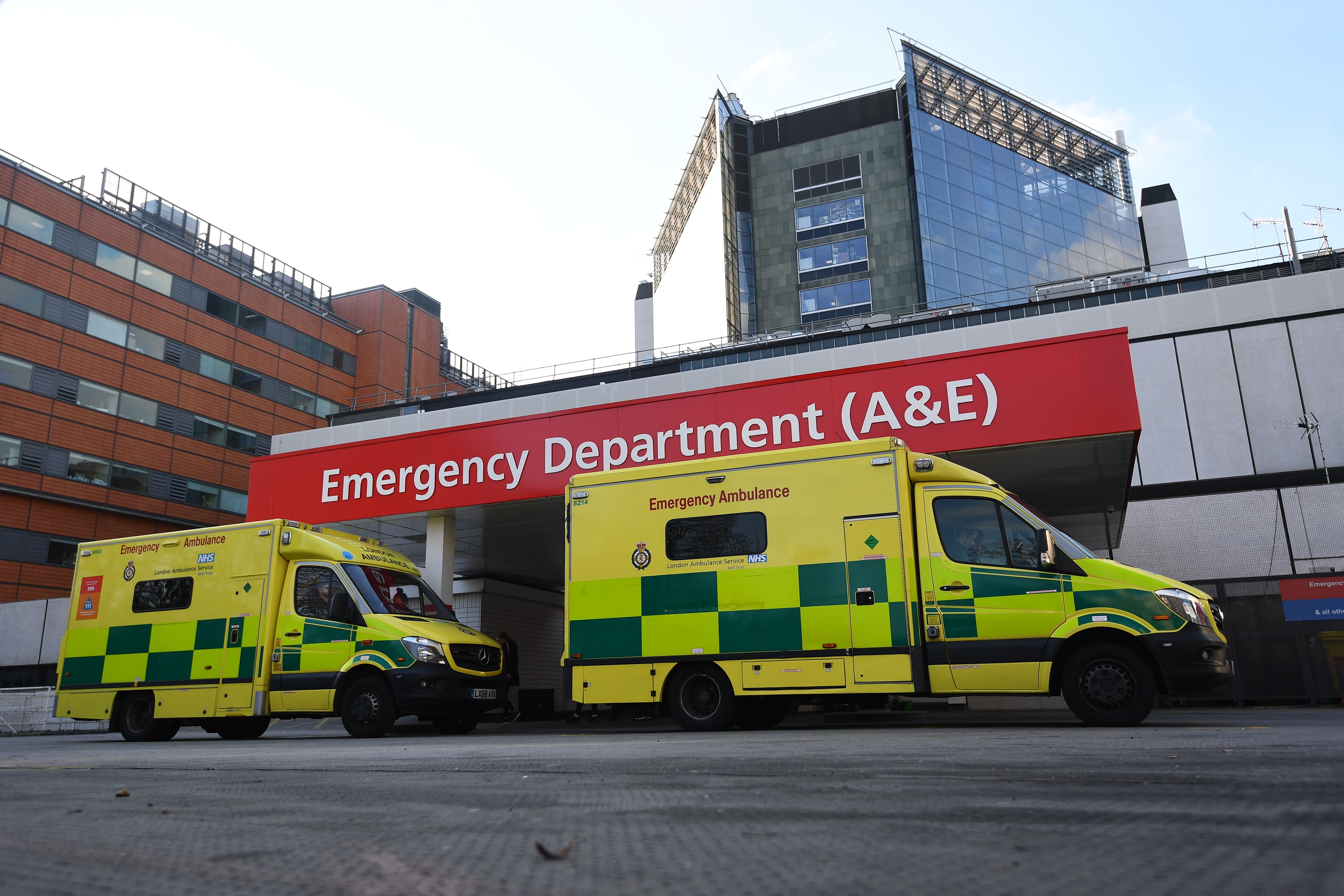Some patients forced to wait more than two days for ambulances, new data shows
Some 36,000 category 2 patients overall waited more than three-and-a-half hours in December for ambulances

Patients have been left waiting more than two days for an ambulance in England, a new analysis suggests.
Data collected by Labour from Freedom of Information requests show patients across the country enduring long waits for ambulances to arrive or being stuck outside hospitals waiting to be admitted to A&E.
The figures, collected in responses from half of the ambulance trusts by the party, showed that in the North West in December a patient waited 65 hours, 38 minutes and 13 seconds for a response to a category 3 call.
Category 3 calls are classified as urgent but are not immediately life-threatening, with problems including a diabetes issue or requirement for pain control to relieve suffering. These calls should be reached within two hours in nine out of 10 cases.
The data also showed that the longest waits for an ambulance following category 2 calls in the West Midlands and Yorkshire (which can include people with heart attack and stroke) meant patients were left waiting over 21 hours. The target is 18 minutes.
Meanwhile, also in December, the longest wait for a category 2 call in the East Midlands was more than 26 hours.
Other Freedom of Information data collected by Labour for 2022 showed that one patient waited 40 hours in the back of an ambulance outside a hospital in the South West, while in the East of England, there was an almost 36-hour wait, and one of 32 hours in the West Midlands.
Shadow health secretary Wes Streeting said: “Patients can no longer trust that an ambulance will reach them in an emergency.
“Stroke and heart attack victims are left waiting for hours when every second counts.”
NHS Providers chief executive Sir Julian Hartley said: “These figures are further evidence, were it needed, that last winter was one of toughest on record for the NHS.
“Trust leaders will be very concerned by these wait times as ensuring timely, high-quality care for patients is their top priority.
“The causes of long ambulance waits are complex. High demand – always at its worst in winter – along with overstretched capacity and vast workforce shortages all contribute.
“Trust leaders are working extremely hard to recover urgent and emergency care services and develop community and mental health support to ensure patients can access the care they need swiftly in the right setting. However, they desperately need action on a national level to help tackle these problems.
“The government’s promised long-term workforce plan, which must be fully funded, should help address these issues. It cannot come a minute too soon.”
NHS England data shows that, on average, people waiting for a response to a category 2 call in December waited one hour, 32 minutes and 54 seconds.
Some 36,000 category 2 patients overall waited more than three-and-a-half hours in December for ambulances, the data showed.
There was a big improvement in January, to an average response time of 39 minutes and 33 seconds. However, this was still above the 18-minute target.
Patients should be able to phone 999, safe in the knowledge that they will get an answer and an ambulance when they need it
Meanwhile, from 1 December to 28 February, some 129,023 people waited more than an hour in ambulances outside hospitals.
Mr Streeting said: “This is the terrifying reality after 13 years of Conservative understaffing of our NHS.
“Patients should be able to phone 999, safe in the knowledge that they will get an answer and an ambulance when they need it. The longer we give the Conservatives in office, the longer patients will wait.
“Labour will launch the biggest expansion of the NHS workforce in history, training the staff needed to reach patients on time, paid for by abolishing the non-dom tax status. We will ensure the NHS is there for us when we need it once again.”
A Department of Health and Social Care spokeswoman said: “No one should have to wait longer than necessary to access urgent and emergency care and we are working hard to improve ambulance waiting times, which have substantially reduced from the peak of winter pressures in December 2022.
“Our Urgent and Emergency Care Recovery Plan will allow people to be seen quicker by scaling up community teams, expanding virtual wards, and getting 800 new ambulances on the road.
“This is on top of £750m we have provided this winter to speed up hospital discharge and free up beds.”
A Conservative spokesperson accused Labour of “throwing stones in glass houses” and said that the party should “start fixing the mess they have made in Wales”.



Bookmark popover
Removed from bookmarks